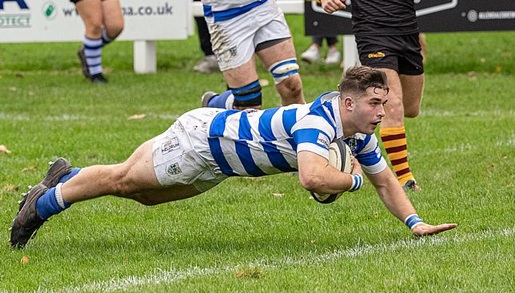Why Rugby Players Sometimes Enjoy Casino Gaming
Walk into any upscale casino in Auckland on a Friday night, and you might spot a familiar face from the weekend’s rugby match. It’s not unusual—rugby players have long had a complicated relationship with casino gaming, one that goes beyond simple entertainment.
The Adrenaline Factor
Rugby is brutal. There’s no way around it. You spend 80 minutes getting smashed, making split-second decisions, and riding waves of adrenaline that most people will never experience. When that final whistle blows, many players find themselves chasing that same rush off the field.
“The thing about professional rugby is that your body becomes addicted to high-stakes situations,” says former All Blacks player James McKenzie (not his real name). “When you’re off-season or recovering from injury, you’re looking for something that gives you even a fraction of that feeling. For some guys, that’s casinos.”
The parallels are striking. Both environments demand intense focus, quick thinking, and the ability to manage pressure. An Auckland Online Casino offers that immediate feedback loop—the spin of a wheel, the flip of a card—that mimics the instant gratification of a successful tackle or try.
Downtime and Social Culture
Professional rugby players have unusual schedules. Training sessions, matches, recovery periods, and travel create pockets of free time that don’t align with typical 9-to-5 life. Casinos operate 24/7, making them accessible venues for players with irregular hours.
But it’s more than convenience. Rugby culture has always been social. The “third half”—post-match drinking and bonding—is practically sacred. As societies have become more health-conscious and professional demands have increased, traditional pub culture has evolved. Casinos have filled that gap, offering sophisticated environments where teammates can gather without the focus being solely on alcohol.
Strategy and Competition
Here’s what outsiders don’t always understand: rugby isn’t just about size and speed. It’s chess at 100 kilometers per hour. Players constantly read opponents, calculate probabilities, and make strategic decisions. That analytical mindset doesn’t just disappear off the pitch.
Games like poker and blackjack appeal to rugby players for the same reason they appeal to any strategic thinker. There’s skill involved, patterns to recognize, and opponents to read. A props forward who spends his Saturdays analyzing defensive formations might spend his Tuesday evenings calculating odds at a New Zealand Casino table.
| Rugby Skill | Casino Game Equivalent | Common Ground |
| Reading the opposition | Poker tells | Pattern recognition |
| Risk assessment | Blackjack strategy | Probability calculation |
| Managing resources | Bankroll management | Long-term planning |
| Pressure performance | High-stakes betting | Mental resilience |
| Team coordination | Tournament play | Social dynamics |
The Money Question
Let’s be honest—professional rugby players in top leagues earn good money. Not football-level insane money, but enough to have disposable income. For every household name making millions, there are dozens of club players earning comfortable salaries with money to spend on entertainment.
Casinos market aggressively to affluent demographics, and professional athletes fit that profile. VIP programs, exclusive events, and hospitality packages make these venues attractive. It’s not hard to see why a player might prefer a night at an upscale casino over other entertainment options.
The Dark Side Nobody Talks About
Of course, there’s another side to this story. Problem gambling exists in rugby just as it does in broader society, possibly even more so given the risk factors we’ve discussed. Several rugby unions have implemented gambling education programs and support systems for players.
“We had guys who were earning £5,000 a week and blowing through it all at the casino,” admits a former team manager who requested anonymity. “The clubs are more aware now, but for a long time, it was just accepted as part of the culture.”
The transition period—when players retire or move between contracts—seems particularly vulnerable. The structure disappears, the adrenaline stops, but the habits remain.
Cultural Variations
The relationship between rugby and casino gaming varies significantly by region. In New Zealand, where rugby is practically a religion, the casino scene has a more integrated relationship with sports culture. Pacific Island players, many of whom come from cultures with strong gambling traditions, bring different perspectives to the table.
In contrast, European club players often encounter stricter regulations and more conservative social attitudes. The UK Gambling Commission has placed increasing restrictions on sports-related gambling marketing, though this hasn’t eliminated player participation—it’s simply pushed it underground.
Modern Changes
The landscape is shifting. Younger players, raised in an era of social media scrutiny, are more cautious about public casino appearances. Online platforms have changed the game entirely—an Auckland Online Casino can be accessed from a phone, making the activity more private but potentially more accessible.
Rugby organizations are also evolving. Most major clubs now include financial literacy and responsible gambling education in their player development programs. The days of turning a blind eye are ending, though the culture shift takes time.
Finding Balance
Not every rugby player who visits a casino has a problem. Many treat it as occasional entertainment, no different from going to the cinema or a nice restaurant. The key, as with most things, is balance.
Former England international David Flatman put it well in a recent interview: “We’re professional athletes, but we’re also human beings who need downtime and entertainment. The challenge is finding healthy outlets that don’t compromise your performance or wellbeing.”
Conclusion
The connection between rugby players and casino gaming is complex—part adrenaline addiction, part social culture, part analytical challenge. Understanding this relationship requires looking beyond stereotypes to see the real humans behind the jerseys.
As rugby continues to professionalize and society’s relationship with gambling evolves, this dynamic will keep changing. What remains constant is the need for honest conversations, proper support systems, and recognition that these athletes face unique pressures that influence their choices off the field.
The next time you see a rugby player at the casino tables, remember: there’s probably more to that story than meets the eye.


